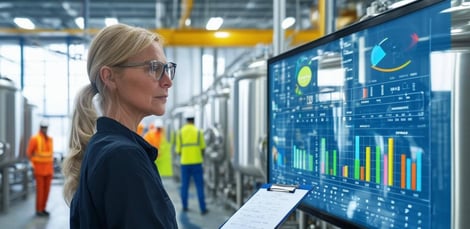
Maximizing Capacity Utilization and Driving Continuous Improvement
In the chemical manufacturing industry, the role of a Production Scheduler is pivotal. Amid volatile markets, fluctuating raw material costs, and ever-increasing customer expectations, optimizing capacity utilization while fostering continuous improvement is not just a goal – it’s a must.
For Production Schedulers, leveraging advanced tools like PlanetTogether APS (Advanced Planning and Scheduling) software and integrating it with enterprise systems such as SAP, Oracle, Microsoft Dynamics, Kinaxis, or Aveva can be a game-changer.

Understanding Capacity Utilization in Chemical Manufacturing
Capacity utilization measures how effectively manufacturing resources, such as equipment, labor, and time, are being used to produce goods. For chemical manufacturers, achieving optimal capacity utilization requires balancing various constraints, such as equipment capabilities, production batch sizes, regulatory compliance, and downtime for maintenance.
High capacity utilization ensures that production resources are efficiently deployed, reducing waste and costs. Conversely, underutilization can lead to inefficiencies and higher per-unit production costs, while overutilization risks equipment breakdowns and quality issues.
For Production Schedulers, capacity utilization is a dynamic puzzle. Every decision impacts downstream processes, inventory levels, and ultimately, customer satisfaction. Hence, having the right tools and strategies in place is crucial.
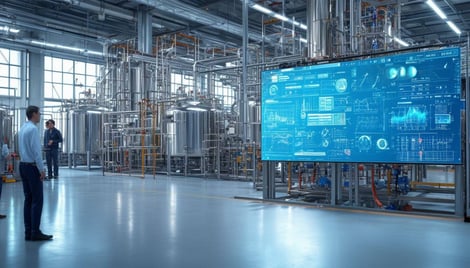
The Role of Continuous Improvement
Continuous improvement is a cornerstone of operational excellence. By regularly identifying inefficiencies, bottlenecks, and areas for enhancement, chemical manufacturers can adapt to changing market demands and maintain a competitive edge.
For Production Schedulers, this means:
Analyzing Historical Data: Identifying patterns in production delays, quality issues, or resource underutilization.
Implementing Lean Principles: Minimizing waste and maximizing value-added activities.
Enhancing Collaboration: Facilitating communication between departments to align production goals with business objectives.
Embracing Technology: Leveraging digital tools to gain insights and make data-driven decisions.
![]()
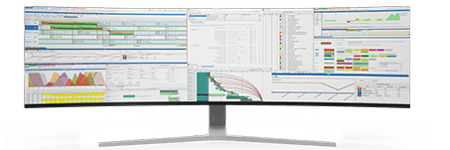
Leveraging PlanetTogether for Enhanced Scheduling
PlanetTogether APS software is designed to simplify the complex task of production scheduling in chemical manufacturing. It provides advanced features such as real-time data analysis, scenario planning, and automated scheduling to help Production Schedulers maximize capacity utilization and drive continuous improvement.
Key Features of PlanetTogether
Real-Time Visibility: PlanetTogether offers a comprehensive view of production schedules, resources, and constraints, enabling Schedulers to make informed decisions quickly.
Scenario Planning: The software allows users to simulate various scheduling scenarios, helping identify the most efficient way to allocate resources and meet production targets.
Constraint-Based Scheduling: PlanetTogether takes into account equipment availability, labor shifts, maintenance schedules, and regulatory constraints to create realistic and achievable schedules.
Integration with ERP Systems: Seamless integration with ERP systems like SAP, Oracle, Microsoft Dynamics, Kinaxis, or Aveva ensures that scheduling decisions align with broader business processes and data.
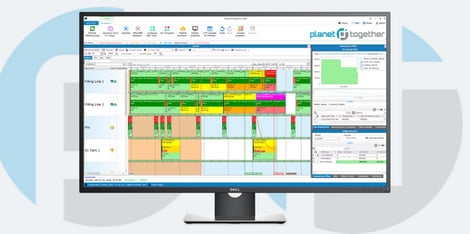
Integrating PlanetTogether with ERP Systems
Integration between PlanetTogether and ERP platforms amplifies the benefits of both systems, creating a unified ecosystem for production planning and execution. Here’s how this integration enhances capacity utilization and continuous improvement:
Centralized Data Management: Integrating PlanetTogether with ERP systems ensures that all production schedules are based on accurate, real-time data. This reduces errors and improves decision-making.
Streamlined Communication: Data flows seamlessly between departments, eliminating silos and fostering collaboration between production, procurement, and supply chain teams.
Improved Forecasting: ERP systems provide demand forecasts, inventory levels, and order priorities, which PlanetTogether uses to create optimized schedules.
Proactive Issue Resolution: Real-time alerts from PlanetTogether allow Schedulers to address potential issues before they escalate, such as equipment downtime or material shortages.
Regulatory Compliance: For chemical manufacturers, adhering to stringent regulations is critical. Integration ensures that schedules comply with regulatory requirements for batch traceability, safety standards, and environmental guidelines.
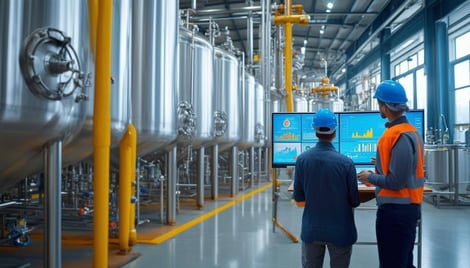
Best Practices for Production Schedulers
To maximize the benefits of capacity utilization and continuous improvement, Production Schedulers should adopt the following best practices:
Embrace Technology: Invest in advanced scheduling tools like PlanetTogether and ensure seamless integration with ERP systems.
Monitor Key Metrics: Regularly track metrics such as OEE (Overall Equipment Effectiveness), capacity utilization, and schedule adherence.
Collaborate Across Departments: Foster a culture of collaboration to align production schedules with business objectives and customer demands.
Adopt Lean Principles: Identify and eliminate non-value-added activities to streamline production processes.
Plan for Contingencies: Use scenario planning to prepare for unexpected disruptions, such as supply chain delays or equipment failures.
Focus on Training: Equip your team with the skills and knowledge to leverage advanced tools and adapt to new processes.
Capacity utilization and continuous improvement are more than just metrics; they are the cornerstones of success in chemical manufacturing. By leveraging tools like PlanetTogether APS and integrating them with robust ERP systems such as SAP, Oracle, Microsoft Dynamics, Kinaxis, or Aveva, Production Schedulers can unlock new levels of efficiency and productivity.
As the industry continues to face challenges and opportunities, embracing advanced technologies and fostering a culture of continuous improvement will ensure long-term success. For Production Schedulers, the journey begins with the right tools, strategies, and mindset to drive meaningful change.
Are you ready to take your manufacturing operations to the next level? Contact us today to learn more about how PlanetTogether can help you achieve your goals and drive success in your industry.
Topics: Centralized Data Management, Regulatory Compliance, PlanetTogether Software, Constraint-Based Scheduling, Integrating PlanetTogether, Proactive Issue Resolution, Streamlined Communication, Improve Forecasting Accuracy




















LEAVE A COMMENT